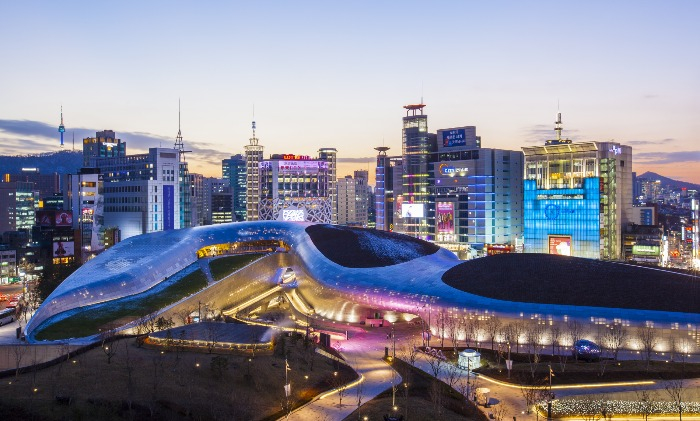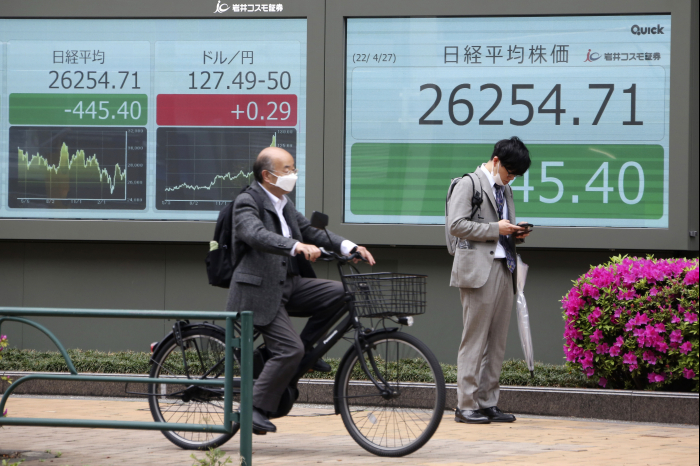The KED View
Following Japan’s economic decline
Incoming Yoon Suk-yeol administration’s next five years will be the last chance for Seoul to change course
By Apr 29, 2022 (Gmt+09:00)
4
Min read
Most Read
LG Chem to sell water filter business to Glenwood PE for $692 million


Kyobo Life poised to buy Japan’s SBI Group-owned savings bank


KT&G eyes overseas M&A after rejecting activist fund's offer


StockX in merger talks with Naver’s online reseller Kream


Mirae Asset to be named Korea Post’s core real estate fund operator



When it comes to the economy, would it be faster for South Korea to surpass Japan or be surpassed by Taiwan?
Recently, all eyes are on the three East Asian countries’ economic data. A lot of the analysis is on comparing Japan’s inevitable economic downturn, South Korea’s fight to keep the status quo, and Taiwan’s visible progress.

The overwhelming sentiment among analysts in Seoul is that Taiwan’s economy could trump Korea’s before the latter could exceed that of Japan.
South Korea’s per capita gross domestic product (GDP) stands at $35,994, based on this year’s statistics by the International Monetary Fund (IMF.) The figure is more than $1,000 lower than Taiwan’s $36,051 GDP per capita.
The tables have turned for the first time since 2003.
Japan’s per capita GDP is still higher than either of its neighbors at $39,243.
Economic institutes in Taiwan forecast the country’s per capita GDP to be higher than that of Japan by 2027.
The Japanese economic fundamentals have been on a slow yet consistent decline. Some even go as far as forecasting that Tokyo’s current account surplus could end its 42-year run within this year.
If the descending value of the Japanese yen continues, the country’s per capita GDP is bound to go down with it.
Turning to South Korea, even though the Q1 per capita GDP climbed 0.7% from the previous quarter and rose 3.1% from the same period last year, it was mainly thanks to strong exports. Lackluster consumption and investments offset the positives of overseas sales.
“The economy posted better-than-expected growth,” said Hong Nam-ki, the country’s Deputy Prime Minister and Minister of Economy and Finance.
But the market does not seem to agree.
The criticism is that the bullish self-evaluation came on the back of the incumbent Moon Jae-in administration’s attempt to put a positive spin on its economic performance over the last five years.

On the contrary, Taiwan’s industrial production rose more than 2% last month compared to the same period the year prior; continuing 26 months of consecutive growth.
Taiwan’s economic growth rate in Q1 stands at a near 4% on-year. Last month’s economic growth rate was the highest in 11 years at 6.28% and the rate reached 3.11% in 2020.
Japan is still the world’s third-largest economy, however, trailing only the United States and China. The archipelago also has a higher average income than South Korea and Taiwan.
What is more pertinent than the macroeconomic indicator, perhaps, is the economic dynamicity.
In sharp contrast to the criticisms about the Japanese economy, news coming out of Taiwan is extremely bullish to the point of being nationalistic. Newspapers on the island boast headlines about record-high spending on eating out and two-digit increases in the average pay.
Let us now bring our attention back to where the Republic of Korea stands.
Critics say Seoul is modeling after Japan’s two “Lost Decades” -- but even in a compressed form.
The rapidly declining birth rate, aging society, and ballooning national debt are also warning signs of catching up to the fall of Japan’s economic might.
The bigger risk is that South Korea is not able to reroute itself despite clearly seeing where the path ends – with neighboring Japan being a glaring example of what not to do.
“Losing the dynamic momentum is more worrisome than the lower macroeconomic figures,” Rhee Chang-yong said back in 2016, while working as the Director of IMF’s Asia and Pacific Department. The outgoing President Moon recently appointed him as the head of the country’s central bank.
“Hit by political failure, the economy lost the ability to reach social consensus and is not pursuing any reform tasks,” warned Rhee.

Despite such warning signs, Seoul has failed to achieve meaningful achievements to strengthen national competitiveness such as investing in infrastructure or reforming the labor system or pension funds. What it zealously pursued, however, were the short-term remedies of spending taxpayer money.
The Yoon Suk-yeol administration begins in about 10 days.
Unless the South Korean economy revs up its engine quickly, it will lose the “golden hour” to resuscitate itself.
What the economists had feared – the Taiwanese economy surpassing that of Korea’s – is now a reality. But at least we can avoid making a mockery of ourselves by choosing not to follow Japan’s course with the dead-end in plain sight.
Write to Sim-Gi Lee at sglee@hankyung.com
Jee Abbey Lee edited this op-ed.
More to Read
-
 The KED ViewSpringtime hopeful for K-Culture’s continued Belle Époque
The KED ViewSpringtime hopeful for K-Culture’s continued Belle ÉpoqueMar 17, 2022 (Gmt+09:00)
4 Min read
Comment 0
LOG IN


